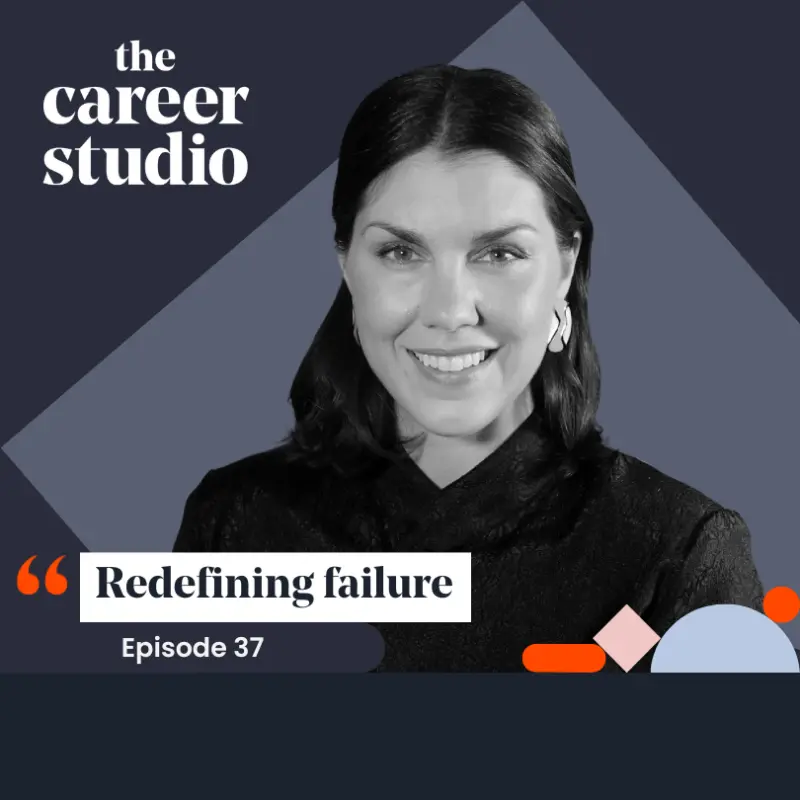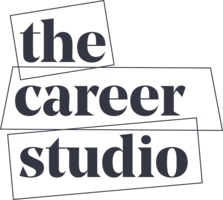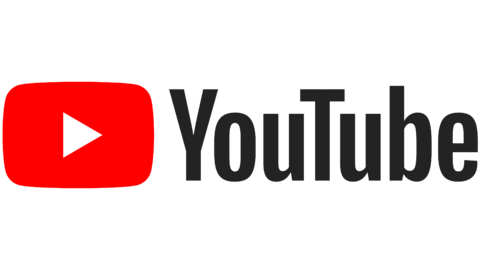Redefining failure

We often fear failure because we associate it with judgment and inadequacy. However failure is inevitable and a natural part of the learning and growth process.
In this episode I encourage you to embrace setbacks as learning experiences and highlight how our goals, priorities, and even careers will evolve over time.
You will learn to recognize that failure is simply a part of the journey towards a fulfilling career and life.
Are you ready to create an energizing career you love?
You can create a career that is simply an extension of who you are and how you want to live your life. If this sounds like what you’re after then let’s explore working together.
Explore my website to learn more about my group and one on one programs.
AND if you're getting value from these episodes I would be so grateful if you can rate and review on whatever podcast app you use. This helps other people like you find and get value from the podcast too.
For more from The Career Studio
Transcript
Welcome to the career studio podcast, where we boil down the noise and focus on the core concepts essential for building an energizing career. You love one. That is simply an extension of who you are and how you want to live your life. Anyone can do it. It's just a matter of knowing what to focus on.
Hi there.
I wanted to come on and talk about failure, because people are so afraid of it. I always hear in my sessions, what if I fail? What if I start this and I fail? We make it mean that we're not good enough. We make it mean people will judge us. You know, what if I do this thing and I fail? Everyone will judge me.
It'll be so embarrassing. Oh my goodness. Like, what will that mean? It'll be so horrible. And we project all these fears and insecurities on this, like, very triggering word called failure. It's like, I imagine it as like a scary creature, monster in the closet, like failure, lots of fangs. People are so afraid of that word.
So yeah, I want you to think about the word failure for yourself and see what comes up for you when you think that. Is there anything in your life at the moment that you feel like, Hmm, I'm going to fail. I could fail. That would be really scary. That would be horrible. Oh my gosh. What would people think?
So question to ask yourself here, as you think about the word failure, if what comes up for you is, Oh my God, people will judge me, right? People will laugh at me. People will think I'm not good enough. That comes up for you when you think about failure. And it's good to look at two things.
First, you want to consider if someone else in your orbit failed at something. They started a business and, you know, it failed. I mean, he's failed in the way that I hear other people talk about failure, but I am going to redefine it. So if you saw someone else start a business and they failed that, or, you know, they didn't get a promotion and they failed or whatever, if that happened, would you judge them?
You know, would you think less of that person? Right? And really ask, really look internally and see what comes up. Because if you would judge them, right? So if you would judge someone who started something and it didn't work out and they quote unquote failed at it, that judgment, judgment in general, judgment of other people, it comes from an insecurity within ourselves.
Right? We judge other people. We look down on other people because we ourself feel insecure about something. And in order to feel better about ourselves, in order to make our ego feel better, we judge others. Right? By putting down other people, we get to feel better about ourselves Okay? And so the need to put down other people, to judge other people will come from an insecurity within yourself, which is fine.
Look, everyone is insecure. I have struggled with judgment and insecurity for much of my life. That's a big thing I've worked on in therapy, you know, but that is an important thing to notice. If you are judging, it's because you have some work to do around your sense of self and your self worth.
Okay. And so then you can work with a therapist or a coach to work on that. However, don't make that a big deal. It's fine, but just notice that and that's what needs to happen there. Right. Your judgment is coming from insecurity. Okay. But if you wouldn't judge them, and if, if you would say, no, cause I was talking to a client recently and she was, you know, really worried about failure.
But when I asked her to think about it, You know, in her life and other people who have tried stuff and haven't worked out and they've quote unquote failed. And she's like, I think like good for them. Right. Or they tried something. If you are not judging the other people, but you have maybe a more positive or neutral story, then that's really interesting, right?
Because then that story is available for you. You get to have that as well. Right. And again, if you struggle to give yourself the same story that you would get to give to other people, there also needs to be some deeper work happening on your sense of self and your sense of self worth. Okay. So. In general, I hate the word failure.
It's such a,...... has so much judgment in it. It has so much heaviness in it. And the way that most people use it, Oh, they failed. There's just, it's like, I don't even like the word, or I want us to completely redefine the word. And that's kind of what I'm going to riff on today in the episode.
If someone does something, And it doesn't work out or they decide to stop it. I don't ever see that as failure or I don't see it as failure in the way that everyone else uses the word failure. So that's why I don't like to use the word because in using the word failure, I feel like I'm adopting the cultural norms around that word. But okay, let me explain what I mean. Let's look at where people are often afraid of failure.
So it's like, what if I choose this career path and then it doesn't work out and it's like the wrong path and I fail. Or what if I start this business or this project and it doesn't work out and I fail? Okay. So, you know, these are typically where people get worried about failure. So first of all, this headspace is usually a protection tactic.
It's just an idea. It's like a baby little idea they haven't even explored at all. And they're just projecting what if I fail onto it. Okay. And so when we project what if I fail onto it, we're focusing on the potential failure and oh, how scary and horrible that would be so that we don't actually have to do the work required to actually explore that idea.
Because, you know, never ever, and I think I mentioned this, I kind of talk about a similar concept in, um, how to mitigate risk in that episode. Never ever would I recommend that you just, you know, All of a sudden start something without any research, right? You know, this is a big part of how I help people with networking.
Like, what are your questions, fears, and concerns about those ideas? And then use that to do the appropriate research to understand what's at stake and what it takes and how it would look. You know, if you have a business idea, you have to do the research to understand if it's viable or not. Is there an audience for this?
Without doing that, you're not going to know. And, you know, you might get the results back that there isn't an audience for it. So, okay, then you, you're not going to pursue it. But if you do get the results back that, you know, there is demand for this idea that I have, and I can see how it would be useful, then you know that you're not going to necessarily quote unquote fail.
Right? Because there is demand for your idea. Okay? So usually we get in this, Oh my God, I'm going to fail just to protect us from actually having to start and do some work. Okay? So remember, like explore it first to understand, is this viable? What would it look like? What does this career path take? How would I get there?
Okay? What does the progression look like within that? What are the skills that people need in order to be successful? I mean, you have to answer all of those things too, to make a decision if that is going to be the right kind of path for you, where you feel like you will thrive and have fun and learn stuff.
Okay. So that is a whole way of first and foremost, mitigating this, like, Quote, unquote failure that you're scared of. Okay, so that's my first point that focusing on failures is like a protection tactic. And you actually have to do the research to see if this is viable or not for me, or if this business idea is viable and there's a market for it.
My second point is that failure is inevitable. I mean, like literally you can't do anything in life without quote unquote failing. And I'm in here. I mean, failing is like messing up or trying something and it not working how you originally thought it would, like you go out to market, you try something and you do not get the results back that you wanted.
Let's call that failure. And so that is absolutely inevitable. I mean, you could stay at home and never do anything. And okay, yeah, then you would never fail, but actually you would probably be failing at life if that's what you did. Like if failure is just part of the natural laws of the universe, mistakes are inevitable.
Okay. Mistakes are inevitable. They are part of human life. There have been countless quote unquote mistakes or mutations as humans have developed throughout time that have given us, you know, the body and the skills that we all have now. Look at a baby learning to walk, right? How many times does that kid have to fall over again and again and again until they get it right?
You know, failure is part of learning. Mistakes are part of, like, the beauty of the universe. It's so inherent in the substance of our life that to fear it is to fear life itself. I know that's so profound, but I really believe that. I really want us to embrace failure as part of the human experience and start to look for mistakes and start to look for like, Little failures all over so that you can see your own mistakes and fallibility are part of what makes you human.
So yeah, failure is part of what makes us human. It's part of learning. And you know, the difference is that the baby who is learning to walk, they don't give up because they fall down once they don't make that mean I suck and people are going to judge me because I fell down once. They fall down over and over again, and they keep iterating and learning from falling down to ultimately learn how to walk.
I know this is a classic failure example, but I'm giving it anyway. And this is really the headspace to focus on whenever you are doing something. If I try something and my first approach doesn't work, am I willing to iterate and try again? Right? And if you say no to that, you're never going to do anything new, right?
So iteration is based not only on mistakes, but on new information that you gather on your personal growth, right? It's how you build anything. We're constantly iterating, right? And that's kind of how I like to see failure as part of this iteration process that's necessary to just progress in life, to, to live a full, robust life, to do cool things.
You have to do tons and tons of iteration. I'm thinking about dating. Dating is just this constant process of iterating, learning about what works, what doesn't work, trying different people on, seeing how they fit, you know, and eventually you, you figure out enough about yourself and what you want and who is going to be a good partner for you that you're able to say, Hey, yeah, you, I want to spend my life with you or I want to have children with you, et cetera.
I had an iteration, which. Right inherently has mistakes or quote unquote failure in it is how you learn any skill, right? You make some tiny mistakes along the way. You make some big mistakes on the way, you know, quote unquote, lots of tiny and medium size and bigger failures, right? Like, that's how you learn a skill.
Okay. So now let's zoom out. You said, you know, and you know, what if I do all of the research and I decide I want to launch a business and then I do launch the business and I continually iterate and improve the product and adjust the offering as I learn more. And as the market shifts and I do all the things and I keep iterating, but nothing is working and I eventually have to close it.
Okay. I have two comments to that first with any goal. Really the main thing is commitment. Right. Commitment to iterating commitment to I'm going to figure this out and I'm going to iterate as many times as it takes. Right. And so within iteration, right, there's lots of failure. So I'm going to iterate as many times as it takes to achieve this goal.
And I've talked about this before, but like this podcast, for example, is nowhere near what I want it to be. I, you know, I've always wanted to have a podcast and I've always wanted it to have a strong listenership. And I started the podcast because I did my research and I knew that this would be a good tool for me to support my business.
Plus I like talking and sharing my opinion and I like interviewing, which is something I'm going to add more to the podcast. So. I did enough research to say, you know, this is something I would, I would like to try. I think I would enjoy doing it and it would make sense for me and what I'm doing in my life. Okay.
And now that I'm into it, maybe a year and a half. And while certainly I have some avid listeners, it does not nearly have the scale. That I want it to have. Okay. But I do not mean that I've failed. I've just made it mean like I haven't figured out the formula yet to create the result I want because I know there's so much I haven't done.
Right. I've actually kind of paused on this podcast or like really focusing on it to the level I want because I have so much more to do in my business. Right. So I just know there's so many other tactics that I haven't tried to make this successful just hasn't been a priority and I'm committed to trying loads more stuff to make this successful Right, and I think that's such a big part of it.
It's just like are you committed to? Continuing and iterating even though you will have disappointment along the way, even though you will try stuff and it won't work the first time. That's quote unquote failure Right? But I'm not seeing it as failure or I'm, or I'm defining failure is just part of the process.
Like I'm going to take tons and tons of tiny failures to figure this out. Okay. But let's just say in five years, it's still not working. I've tried everything, or maybe I've just like, I have different priorities. My business has changed. I'd rather spend time on other things. And just the amount of additional work required to make it successful.
I don't want to. That's usually actually what I think it is. It's like, it's never failed. It's just, you know, is the additional work required? What I want to do, you know, do I want to re imagine it again? Do I want to try more tactics? If, you know, at some point there's an opportunity cost that is completely individual that you're going to decide, does that make sense for me or not?
And so, okay, whatever, let's say I decide the opportunity cost of continuing to make this podcast work is no longer viable or valuable for me. Well, then damn, I have learned so much, right? I will have released hundreds and hundreds of podcasts and interviewed lots of people and, you know, grown so much as a, as a business person in doing that.
And I, all of that experience will, I will be able to use. in my life in other ways. And like the person that I will have become in the pursuit of lots of little failures and iterating and improving and trying new things is going to be so much more than who I am now. Okay. And so that's the mindset to use for this scary word of failure.
Right? Failure is just about learning. Failure is about iterating. Failure is a totally normal part of the human experience and frankly, fundamental. to the human experience. Failure is how you create wisdom. Failure is how you grow as a person, right? You know so much more about yourself. You know so much more about the world.
You know so much more about whatever the topic is that you're working on. Okay? And all that insight is just going to help you further in your career. When I got fired, right? I mean, those were like a terrible six months and you could call that a failure, right? I failed at being an early stage marketing person at a seed stage startup.
I could say I failed, but I don't frame it like that. It's like, I learned a lot. Yeah. Like I didn't end up becoming that person because I had a different path to take, right? And this is where I get spiritual. It's like, you know, you can fail and stay committed and all of that and, and keep learning and iterating.
But at a certain point you also are like, maybe this is not the path and there's something else waiting for me. And certainly in the example of that startup where I got fired, this whole career that I'm doing now was waiting for me. Right. And, that experience helped me to realize that. Right. And that's what these are.
little failures show us, they, they teach us about yourself and what's important to us and they help us get on the right path for us. Okay. So, you know, failure is just part of the constant adjustment that we do in our lives. And, you know, this is also a big theme of my work is, you know, who we are and what we want will evolve.
You know, it's not like we just Decide to do one thing and like, that's it. And then that's our life. And you know, if we don't do that perfectly, we've somehow failed in life right now. Life is more like sailing, right? You know, you're constantly adjusting the direction of the boat and the sails depending on the wind and where the wind is coming from and the intensity of the wind.
Right. And that's what Life is, is this constant adjustment? And so, you know, because you're, it's like, Oh, I set my sales in this direction and then the wind changed. So did I fail? No, it was just the wind changed and I had to, to iterate and readjust. Right. So who you are and what you want will evolve. The industry that you're in will evolve that your business itself evolves that you're in or that you're running your role evolves.
Like thinking about going up on a career ladder. Every new role is something different. Right, that you have to adjust to. Each time you meet one of these evolutions, you know, you restructure and you adjust, right? And that is life, right? Life is full of these little adjustments and mistakes and failures and learnings.
Like, I mean, that is living. Okay. And that's really why I developed my work because each one of these foundational concepts that I talk about help you efficiently manage this constant adjustment. So let's go through them briefly now. Right? My brand. Well, so this is about authenticity, like being authentic to yourself, right?
So am I playing in the right space? Am I doing the stuff that really plays to my strengths and my interests and my priorities, right? Am I aligned in the activities that I'm doing? Or do I need to adjust? You know, does the collection of things I'm doing no longer make sense for me? It doesn't mean I failed.
It just means I need to adjust. Okay. People, am I getting the right support? Right. Oh, if I'm like, you know, my podcast needs to grow. Am I asking the right people for support? Right. Am I asking the right people onto my podcast? Right. You know, how can I leverage my network to help me figure out whatever challenges are in front of me to help me address this quote, unquote, small failure that I'm going through at the moment.
Mindset. Am I intentionally cultivating my thoughts, right? If I'm focused on like, Oh, I suck because I made this mistake and everyone's laughing at me and Oh, you know, if you make a mistake, you're a bad person. Well, you know, then there's some mindset work to do. And as part of that, am I efficiently moving through my feelings so I can get into the right headspace, right?
When we are pierced with an uncomfortable emotion, we have to go right in and we have to process it efficiently and effectively so that we can reset back to neutral and get into a more expansive space. Right? So all of that is going to help you manage the hurdles in life. And make sure that you're approaching them efficiently.
And then time. Am I creating space for myself to recharge and rest and express myself in an energizing way in my life? I do. I have the boundaries on my time. I need to weather the setbacks and challenges and, and evolutions that are going to come through in my life. I'm doing a big evolution in my business at the moment, and it's taking a lot out of me energetically.
And I have to set a lot of boundaries and, and take care of myself so that I can find the creative energy to adjust my business in the way that I'm adjusting it. Right. I like creating something new. and reframing how I do this work. And yeah, I need to make sure that I have boundaries on my time in order to do that.
Right. And I'm out. Am I also managing my to do's effectively? Am I focused on the most important things and I may actually execute on them. Okay. So this is why I love my work because it helps you manage the constant adjustments in life. Okay. The millions of failures, big and small that you're going to face throughout your life.
And embracing failure or mistakes or adjustments is the only way to move forward and create a career and life you love. Okay. And by listening to this podcast, obviously you are getting the toolkit for that. This has been a bit of a rambling episode, I think for me, but, um, I hope that this made sense and failure is so normal.
So stop making it like this horrible thing. That's all I'll say. Have a great week.
Hey, if you're ready to create an energizing career, you love the one where you get to show up every day and be yourself, then let's explore working together. Head over to my website: https://www.thecareer.studio to learn more about my group and one on one programs.
And if you're getting value from these episodes, I would be so grateful if you can rate and review. On whatever podcast app you use. This helps other people like you find value from the podcast too.



